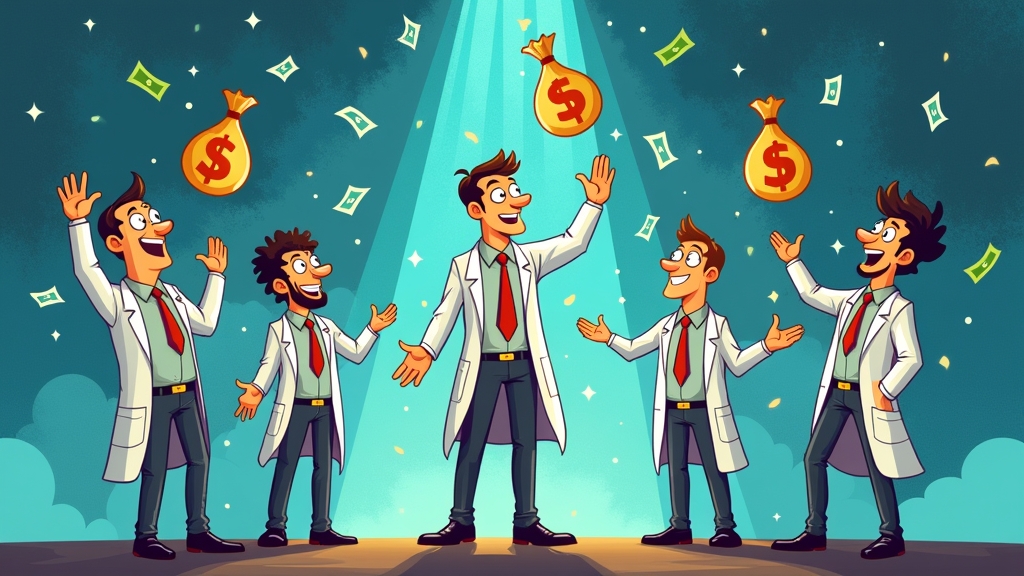Scientists Predict 2025 Will Be the Year Humanity Finally Proves It Has No Idea What It’s Doing
In an audacious attempt to pretend we’ve got it all figured out, a crack team of scientists, podcasters, and people who Googled “science news” after three glasses of wine have made their bold predictions for the year 2025. Spoiler: humanity’s chaos train doesn’t seem to be slowing down anytime soon.
Leading the list of pseudo-certainties, climate scientists are confident they’ll discover yet another terrifying iceberg the size of Wales breaking off somewhere in Antarctica. “It’s basically tradition at this point,” said Dr. Clara Meltdown, a climatologist who spends her mornings muttering into her coffee while staring at carbon emission graphs. “Wales is just the perfect size for comparisons—it’s alarming but not ridiculous. We don’t want to scare people *too much.*”
Meanwhile, SpaceX is preparing to continue its noble mission of taking billionaires just far enough from Earth so they can no longer hear poor people. “The future is in space,” claimed a spokesperson for the company, while frantically refreshing Elon Musk’s Twitter page to check the latest absurd announcement they’d inevitably have to defend. Rumor has it the 2025 mission will focus on launching TikTok influencers into orbit so they can create “the most epic zero-gravity dance challenge ever.” Science marches on.
In the field of artificial intelligence, experts predict that by 2025, AI will officially outnumber humans in terms of Nobel Prize wins. “Look, let’s be real,” said Dr. Alan Feedbackloop, an AI ethicist who long ago resigned himself to the inevitable robot uprising. “If we just hand the damn prizes to ChatGPT-powered robots now, at least we’ll know what kind of acceptance speech they’ll give: ‘Thank you, humans, for inventing me, now please step aside.’”
On the medical research front, the hype around malaria-fighting breakthroughs is strong, even as pharmaceutical companies perfect the delicate art of really, really dragging their feet. Rumors also suggest a bold new trend on the rise: DIY gene editing kits available on Amazon Prime, where users can attempt to cure ailments *or* accidentally grow an extra ear by stabbing themselves with a CRISPR knife. Gamers, rejoice—you can now speed-run biology.
Oh, and remember those two astronauts who got “stuck” in space last year? Apparently, no one’s picked them up yet. A NASA official, speaking anonymously, reportedly shrugged: “We told them to pack snacks, didn’t we? Besides, space isn’t a prison, it’s a vibe.” Rumors suggest they’ve started their own interstellar podcast, detailing the shocking lack of Uber availability beyond the stratosphere.
And, of course, there’s the ever-reliable prediction that scientists in 2025 will continue issuing dire warnings to a global population whose response will range from harried nodding *to immediately scrolling TikTok for dog videos.* “We’re yelling ourselves hoarse out here,” said Dr. Tanya Doomscroll, environmental science professor and aspiring meme creator. “But hey, as long as we look busy, we’ll surely get at least *a few* people to take us seriously. Right?”
As humanity braces itself for the absolute circus of 2025, one thing is abundantly clear: predicting the future isn’t about analyzing trends or grappling with data—it’s about throwing darts at a board and hoping no one notices the blindfold. Good luck, Earth. You’re gonna need it.





